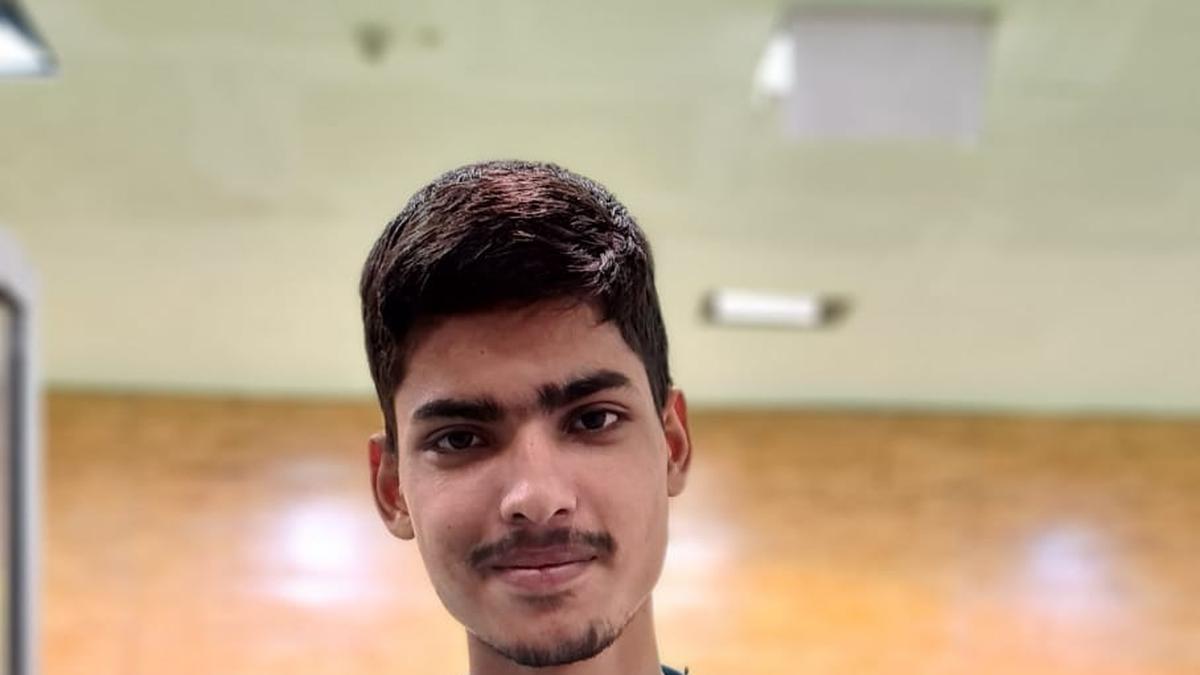Once bullied for his speech and hearing disabilities, Abhinav Deshwal now aims for Olympics
He may have a speech and hearing impediment, but it is his exceptional pistol shooting that does the talking for 18-year-old Deaflympic champion and national medallist Abhinav Deshwal.
When he stepped up to the firing line at the start of the qualification round of the 10m air pistol event at the National Games, Abhinav looked around. Just to his right at the shooting hall at the Maharana Pratap Sports Complex in Dehradun stood former Asian Games champion Saurabh Chaudhary. A couple of places to his left was 2024 Olympian Angad Cheema. Yet, the 18-year-old remained unfazed by the presence of some of India’s finest pistol shooters.
Abhinav rose to the occasion. He shot scores of 96, 96, and 95 in his three series for a total of 287 — just one point behind Saurabh and one ahead of Angad. Alongside his partner, Yashasvi Joshi, who scored 286, he unexpectedly secured a place in the bronze medal playoffs of the mixed team event. It was the host State’s first opportunity to win a shooting medal at the National Games.
There would be no medal. Abhinav and Yashasvi were beaten by Maharashtra’s Arvind Patil and Asian champion Rahi Sarnobat. However, local reporters remained keen to speak with the home pair.
The interest waned when it became evident that Abhinav, who wears a cochlear implant to manage hearing loss, had a significant speech impediment and struggled to communicate on camera. Instead, the media turned to his father, Mukesh, while Abhinav stood quietly beside him.
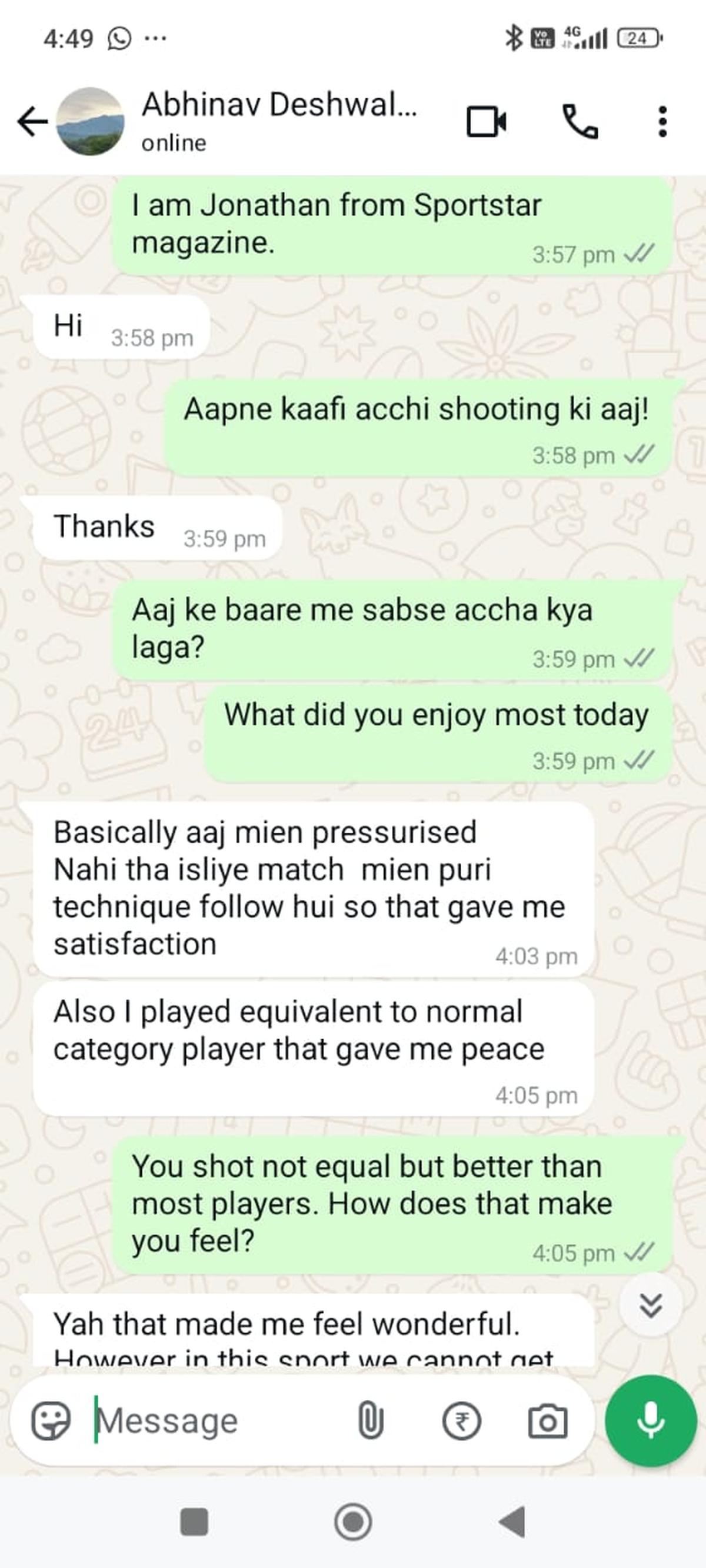
Yet, he is anything but inarticulate. When Sportstar communicated with him via text messages on his phone, the 18-year-old provided remarkably thoughtful and insightful perspectives on his sport and life.
When asked about his match on Thursday, he texted:
“ Basically aaj main pressurised Nahi tha isliye match mien puri technique follow hui (Today I didn’t feel any pressure, so I was able to follow my technique). That gave me satisfaction. Also, I played at the same level as the able-bodied players, that gave me peace (sic),” he texts.
Reflecting on his performance against elite shooters, he acknowledged both his progress and the road ahead:
“Yes, beating international players made me feel wonderful. However, in this sport, we cannot afford to be overjoyed.”
A difficult childhood
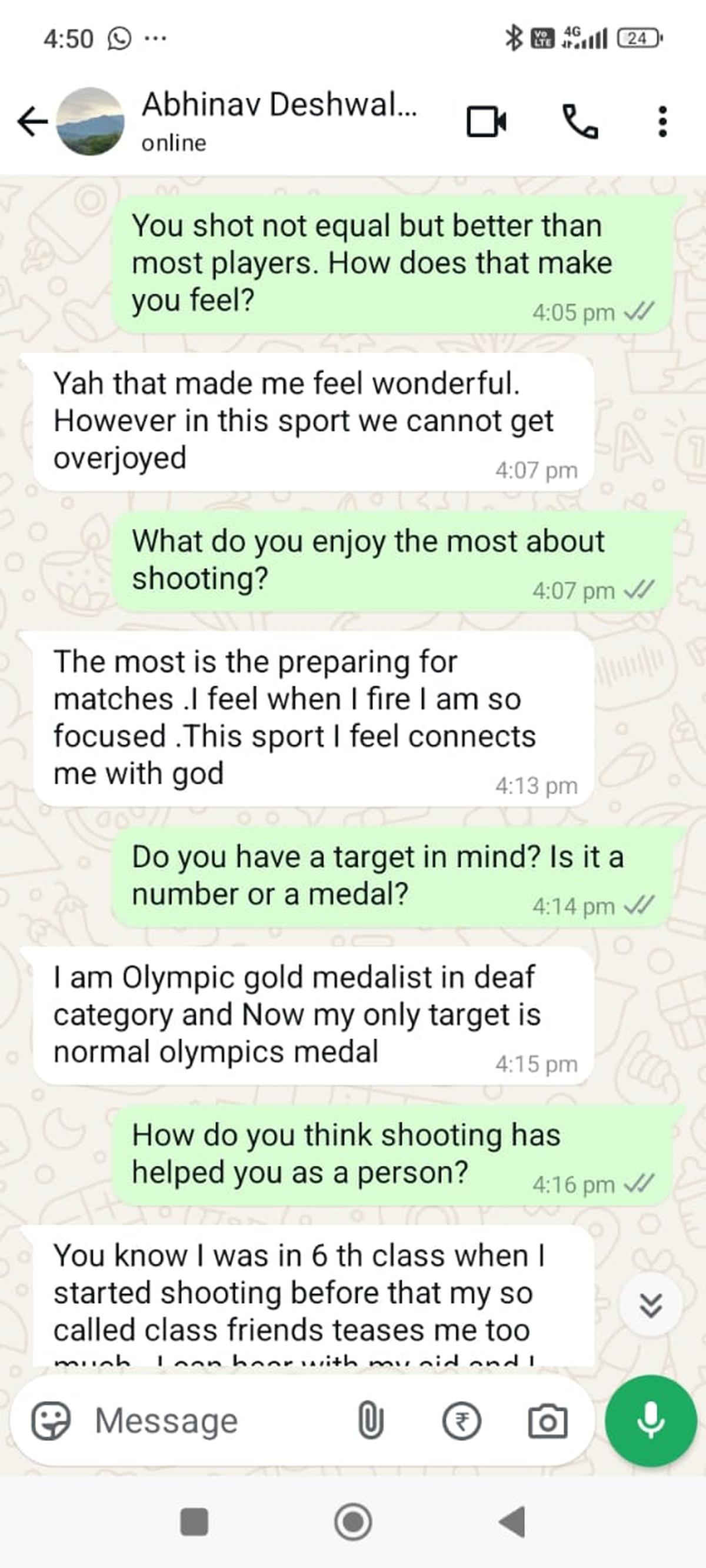
Born and raised in Roorkee, Uttarakhand, Abhinav did not have an easy start in life.
“He was born very prematurely and later contracted meningitis. We had to move him to Jaswant Rai Hospital in Meerut, where he underwent intensive treatment. The doctors suspected that the illness might have long-term effects, and when we took him for a check-up at four months old, they confirmed that he was completely deaf in one ear and had only 15% hearing in the other,” his father Mukesh recalls.
A cochlear implant at the age of four restored some hearing in his left ear, but Abhinav was left with a severe speech impediment. This, in turn, affected his confidence.
“He was a very shy child. He was practically deaf and mute. He avoided other children,” Mukesh says.
To help him come out of his shell, his parents introduced him to shooting when he was 10 years old.
“I was very worried about him. When a child has a speech and hearing disability, they can become socially isolated. We discovered shooting by chance while exploring activities that might be good for him,” Mukesh says.
The young boy quickly became obsessed with the sport. He particularly admired Saurabh, who emerged as a prodigy, winning gold at the 2018 Asian Games — just a few weeks after Abhinav had taken up shooting.

At Abhinav’s insistence, his parents took him to Binauli in Uttar Pradesh’s Baghpat district, where he trained under Saurabh’s first coach, Amit Sheoran.
He progressed rapidly. Although his parents were initially unaware, Abhinav was eligible to compete in the Deaflympics — the global competition for hearing-impaired athletes. At his first Deaflympics in Rio de Janeiro in 2022, a 15-year-old Abhinav clinched gold in the 10m air pistol event.
For Mukesh, the medal was secondary to the transformation his son underwent.
“Our family was very anxious when he travelled for that competition because we weren’t sure how he would communicate. But he knew exactly what he had to do. When he returned from Rio, he was a completely different person. His coach said he left as one individual and came back as another,” Mukesh says.
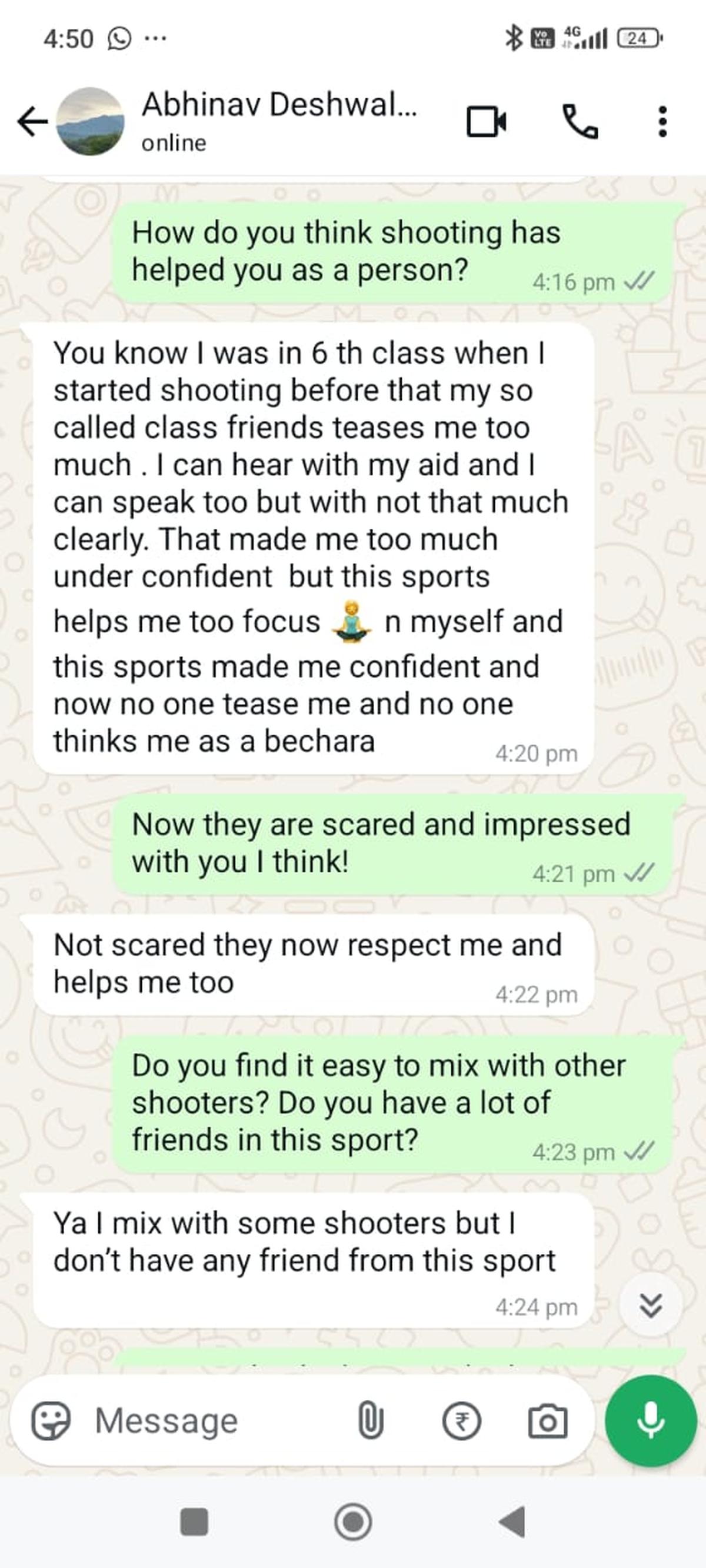
Overcoming bullying and self-doubt
Shooting, Abhinav admits, changed his life.
“I was in Class 6 when I started shooting. Before that, my so-called classmates teased me a lot. I can hear with my aid and I can speak, but not very clearly. That made me extremely underconfident. This sport helped me focus on myself… It made me confident, and now no one teases me or sees me as a ‘ bechara’ (a tragic case),” he texts.
No one sees Abhinav as a ‘bechara’ anymore — least of all himself.
“If I had to share one message, it would be to focus on your abilities, not the disabilities that God has given you. Sometimes, those very disabilities can become a blessing,” he says.
According to Jaspal Rana, the coach of double Olympic medallist Manu Bhaker, who has been training Abhinav since last year, one of his greatest strengths is focus.
“I’ve always believed that people who are differently abled develop a sixth sense in certain areas, and one of Abhinav’s skills is his extraordinary ability to focus,” Rana says.
A seasoned coach who has worked with top-tier talent, Rana sees immense potential in Abhinav.
“I was looking for a challenge after working with Manu. Communicating with him can be challenging, but his ability to grasp things quickly is remarkable. He learns not so much by hearing but by observing. Once he sees something, he picks it up immediately. More importantly, he possesses key qualities of a great shooter — focus, honesty, and an unrelenting hunger to improve,” Rana says.
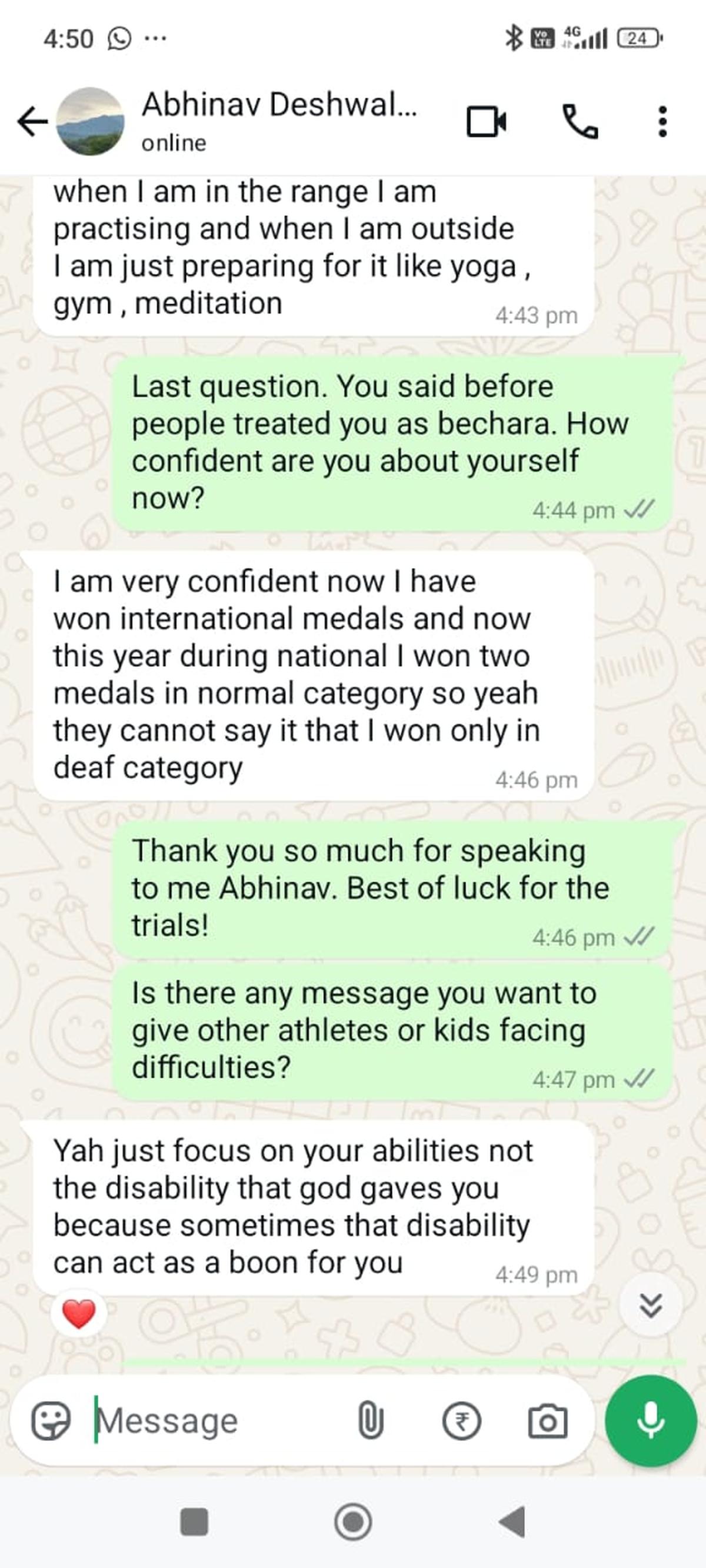
While he has high hopes for Abhinav, financial constraints could hinder his progress.
“Right now, his father is funding his training, but shooting is an expensive sport. He also needs more competitions and exposure,” Rana notes.
For now, Abhinav is doing what he does best — shooting. He describes himself as an aggressive shooter, completely dedicated to his craft. His entire life outside the range revolves around preparing for competitions.
“As my coach says, I have great focus, and I agree. I am also fearless during competitions. My entire day revolves around shooting — when I’m at the range, I’m practising; when I’m outside, I’m preparing for it through activities like yoga, gym workouts, and meditation,” he texts.
His ambitions are clear. Despite already being a Deaflympic gold medallist, he has set his sights even higher.
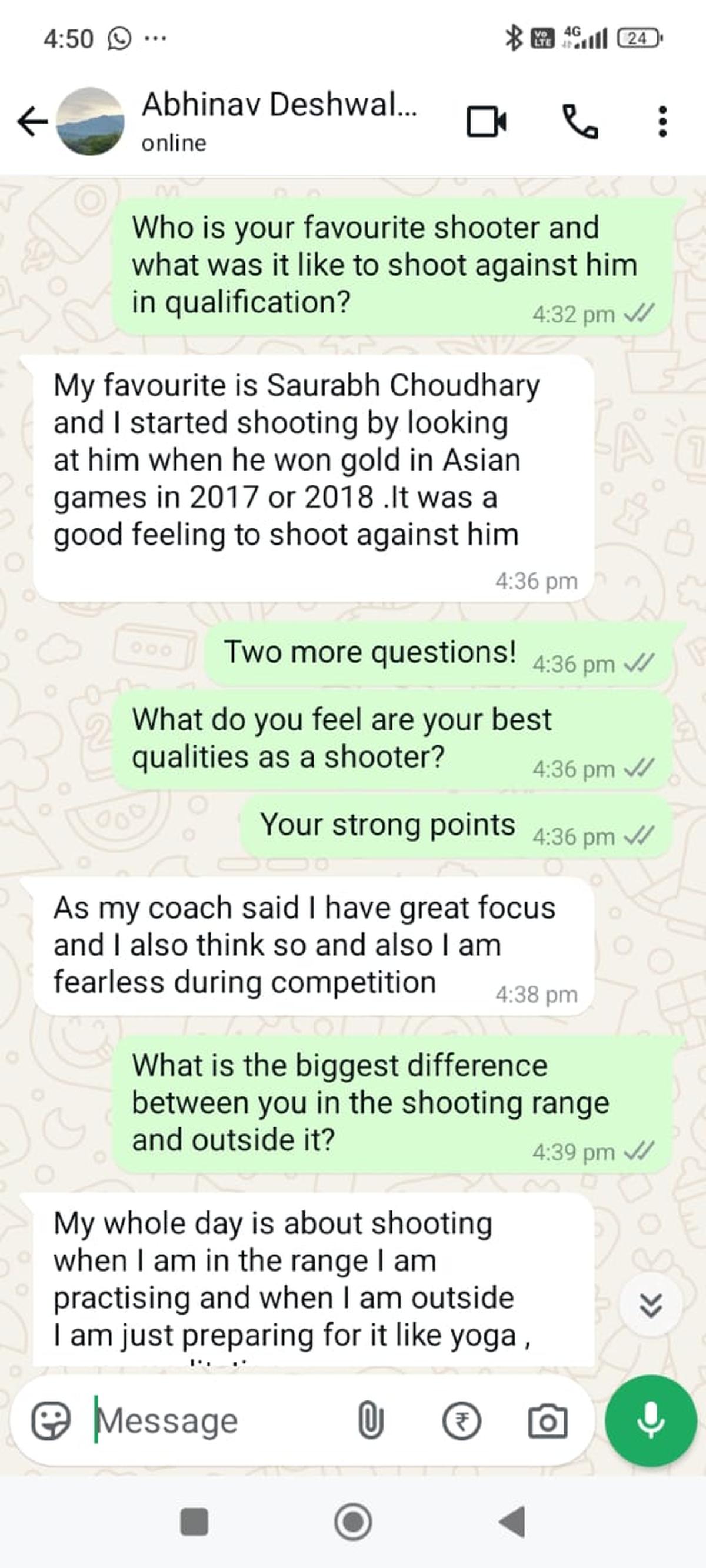
“I am an Olympic gold medallist in the Deaf category. Now, my only goal is to win a medal at the Olympics,” he adds.
Dismissing him would be unwise. Training under Rana, Abhinav has begun making a mark in able-bodied competitions. At the 2024 National Championships, he won a silver medal in the mixed team event in the youth category.
Although he missed out on a podium finish at the National Games, he sees the progress he has made.
“I got over it (losing) quickly, and now I’m happy that I at least made it to the final.”
Looking ahead to the Indian shooting selection trials in New Delhi on February 17, he remains unwavering in his pursuit of excellence.
“What I love most about shooting is preparing for matches. When I fire, I feel completely focused. This sport, I believe, connects me with God,” he signs off.


